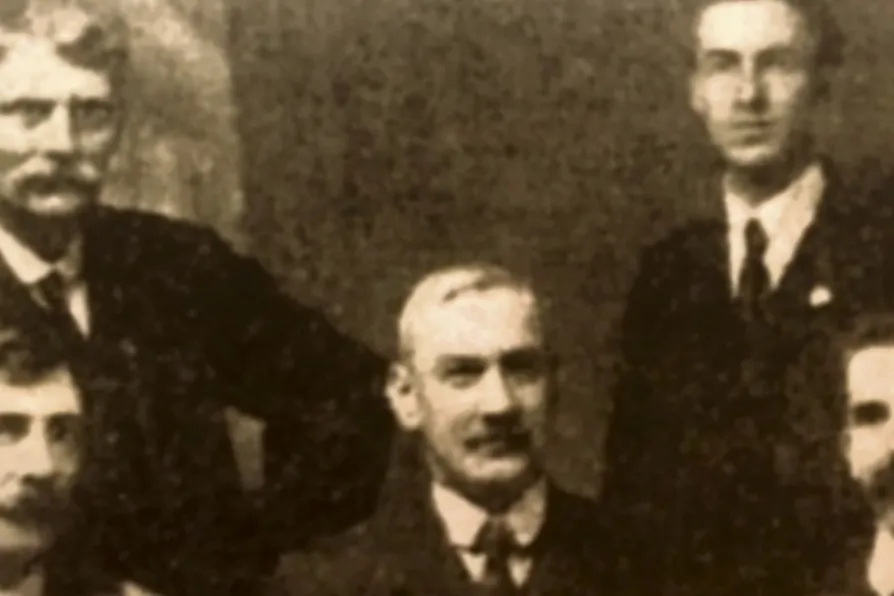As the RMT Health and Safety Conference takes place, the union is calling for urgent action on crisis of work-related stress, understaffing and the growing threat of workplace assaults. RMT leader EDDIE DEMPSEY explains

 GLORY DAYS: The Strike Committee, July 1918, Alf Teare, seated far left, Harry Emery standing on the right
GLORY DAYS: The Strike Committee, July 1918, Alf Teare, seated far left, Harry Emery standing on the right
THIS is a year of centenaries. Memories of the struggles of the suffragettes combining with those of the blood and the wire; of undersized Tommies marching to the sound of the guns and of the armistice that was intended to signal the end to all wars.
Yet, some things are forgotten. History is, after all, a matter of choice, of emphasis, light and shade — as well as of strictly weighed and measured evidence.
The voices of the rich, the powerful and articulate often drown out all other cross-currents, the experiences of the masses, and both the sorrows and achievements of the poor and the working people.

One hundred years after 1.7m workers shut the country down in defence of the miners, the struggles that sparked the 1926 General Strike are still with us – and will be honoured on London’s May Day march this year, writes MARY ADOSSIDES

BEN CHACKO says in different ways, the centenary of the General Strike and that of Fidel Castro’s birth point to priority tasks for the British left in the coming year

Millions of ordinary English people of all backgrounds consider the cross their own — abandoning it, and its left-wing history that includes the peasants’ revolt, concedes vital ground to the right, argues SIMON BRIGNELL











